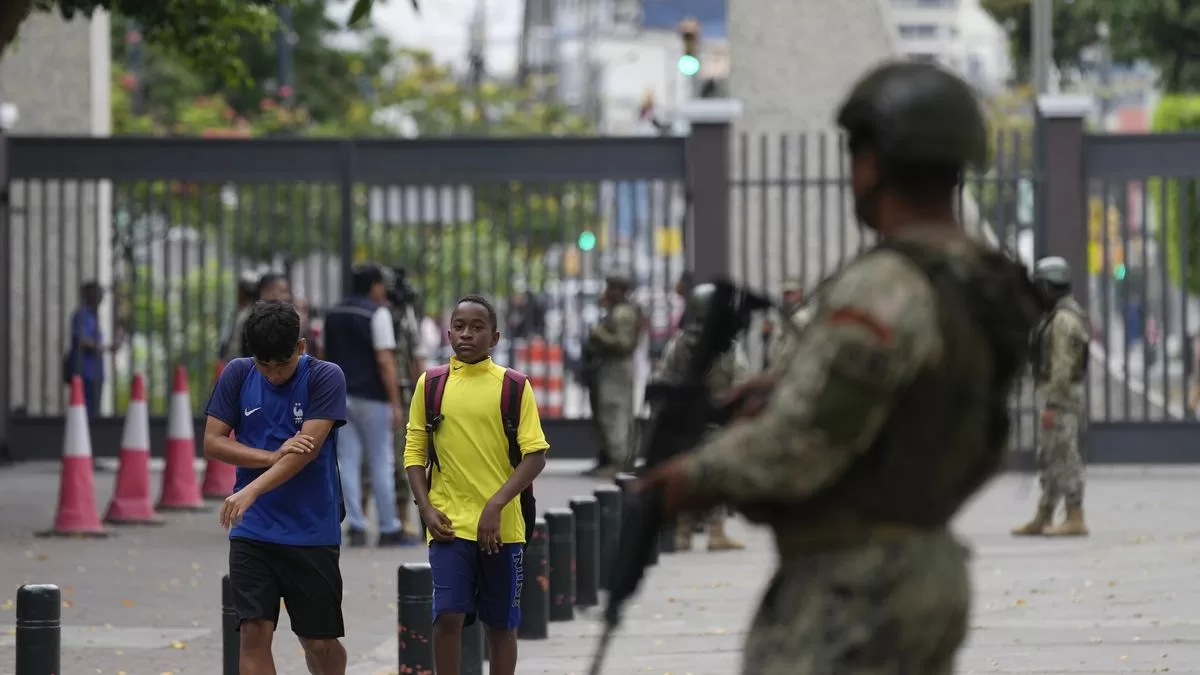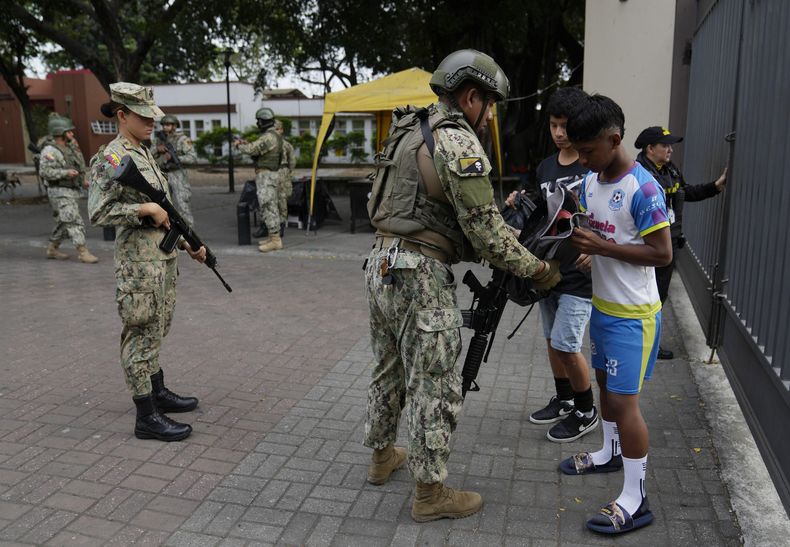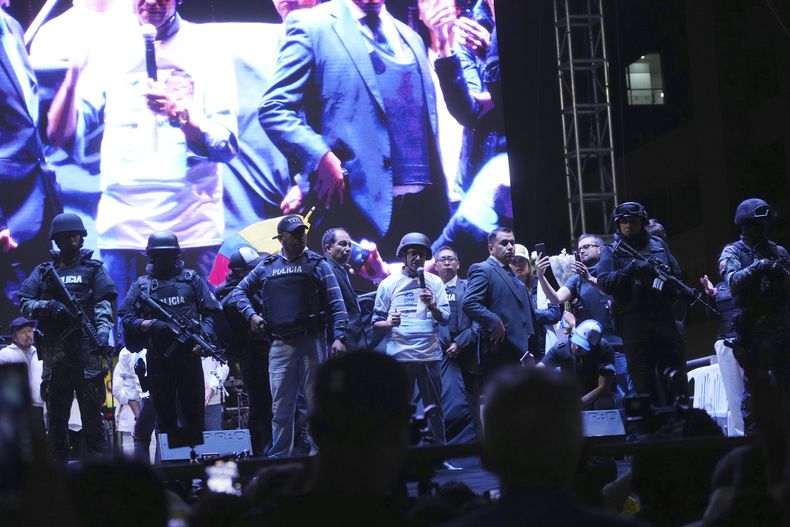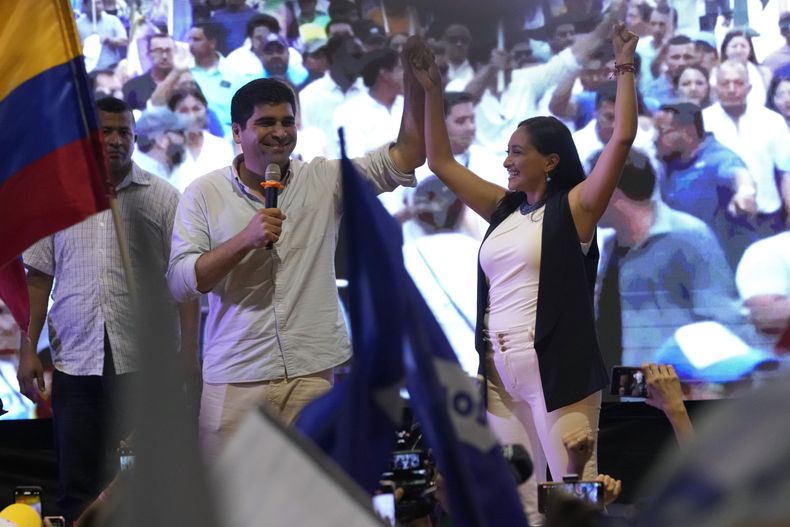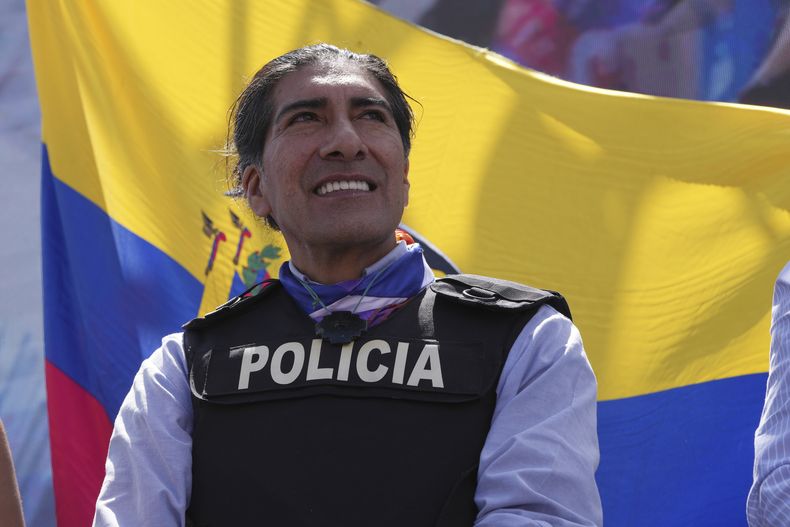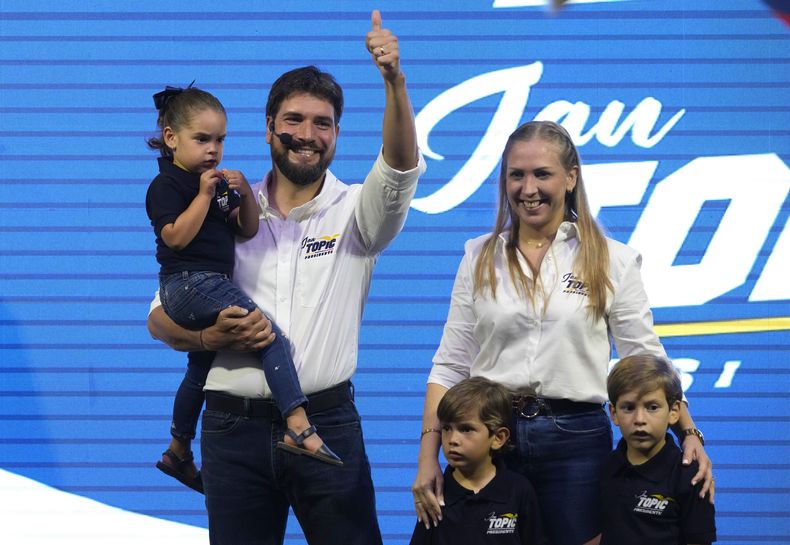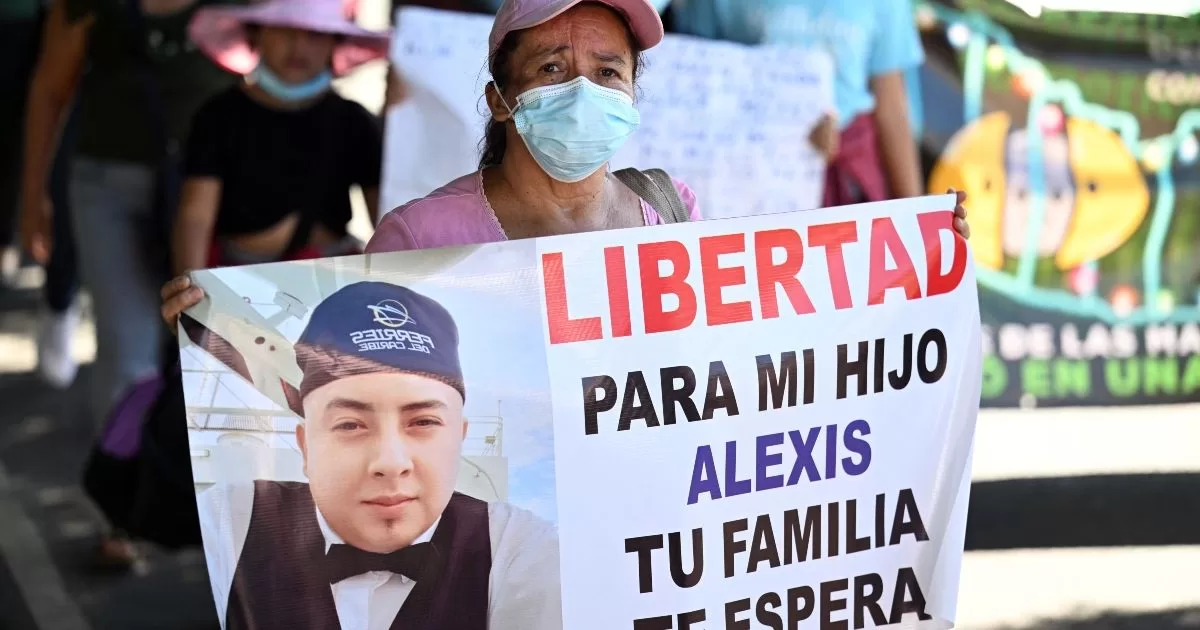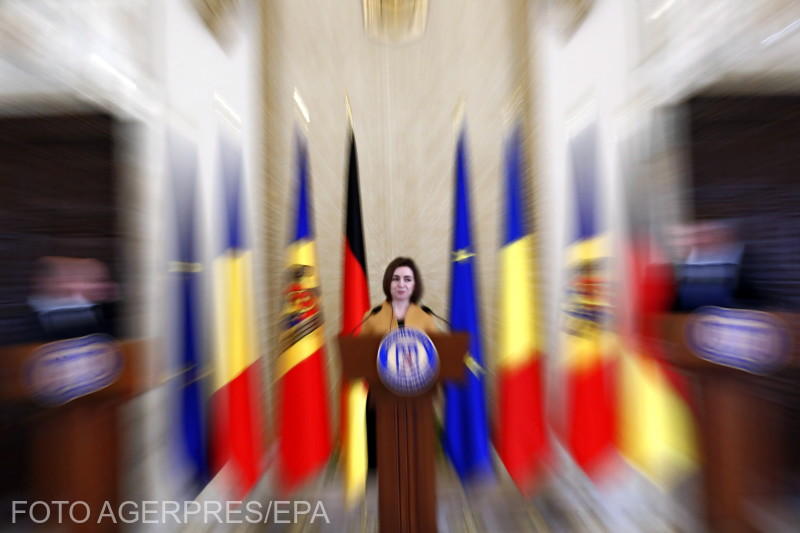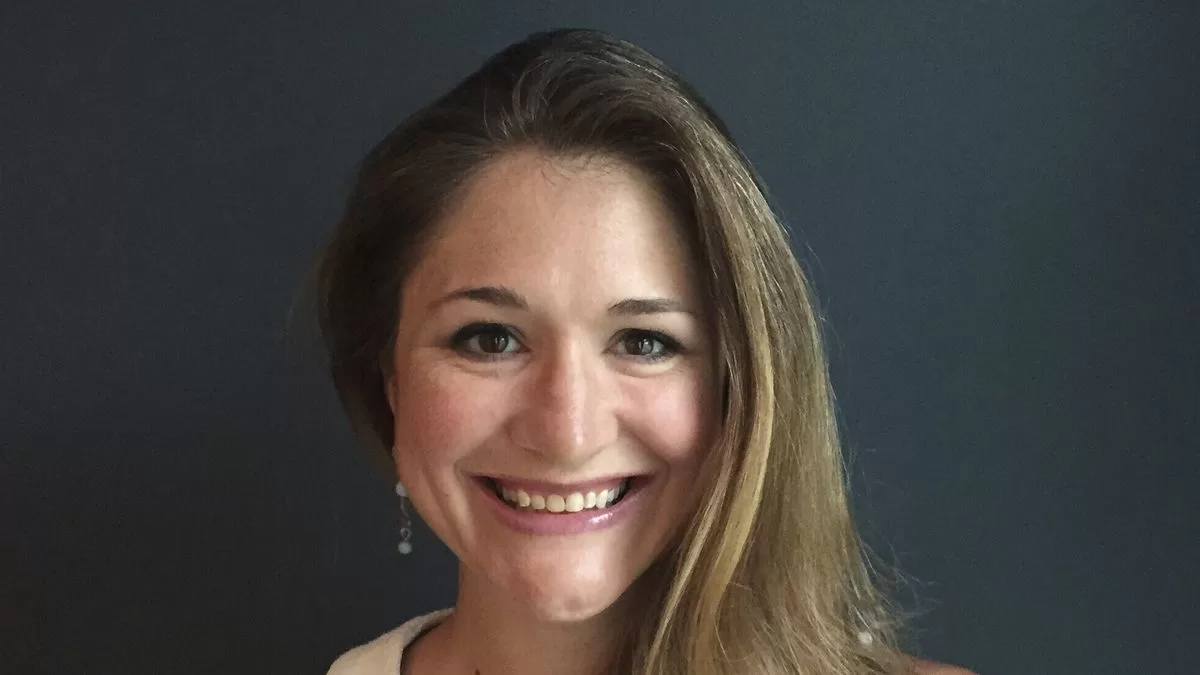“Ecuadorians are going to the polls guided by fear. The main objective is to elect a president who fights against insecurity,” analyst and professor at the University of the Americas, María Cristina Bayas, told The Associated Press. This became even more relevant after the assassination of candidate Fernando Villavicencio, “which hit the country in the face and showed it the enormous violence” underlying it, she added.
That fear, explained Bayas, is also due to the fact that there are territories taken by the mafias that the State does not reach. Ecuadorians “must choose between saving the country from criminal mafias or letting the country sink. Fear is the motor of these elections”.
On August 9, and after a campaign rally in Quito, a group of men shot Villavicencio, who had revealed a series of acts of corruption, especially during the government of former President Rafael Correa (2007-2017). At the end of July, Agustín Intriago, mayor of the third most important city in the country -Manta-, was gunned down and this week a political leader from the province of Esmeraldas, on the border with Colombia, suffered the same fate.
The journalist Christian Zurita replaced the deceased politician in the electoral fight and his candidacy was approved by the National Electoral Council just one day before the closing of the campaign.
The climate of violence is also experienced in the streets where hit men, extortion, kidnappings and crime keep the population on edge. This has forced the government to order a special security operation with thousands of police and soldiers around the electoral precincts to protect voters, who have been warned that they will not be able to bring backpacks or bags to the polling stations as a security measure. .
A total of 13.45 million citizens have been summoned so that next Sunday they choose the successor to President Guillermo Lasso, who dissolved the Assembly in mid-May when he was preparing to impeach him and, as required by law, thus shortened his own mandate and that of the members of the National Assembly.
For this reason, on Sunday in the general elections, Ecuadorians must also elect 137 assembly members who together must complete the remainder of Lasso’s government period until May 2025.
With around 20% undecided according to the polls, the candidate Luisa González leads the preferences, followed by Otto Sonnenholzner, Yaku Pérez and Jan Topic.
González is the candidate of Correa’s left-wing Revolución Ciudadana party; former vice president Sonnenholzner (2017-1021) is presented by the liberal party SUMA; while Pérez is the only indigenous candidate who comes through the alliance called Claro que se Puede and Topic is a millionaire security expert and ex-combatant of the French militia, supported by the right-wing Social Christian party.
In the event that a candidate obtains at least 40% of the votes plus 10 percentage points of advantage over his closest rival, he will win the election in the first round. If not, a ballot is scheduled for October 15. The Electoral Council has anticipated that it will deliver the credentials to the winners, if there is a second round, on November 30.
On Sunday, two popular consultations are also voted to authorize or reject the maintenance of oil exploitation in a sector of the jungle in the middle of the Amazon. In addition, the inhabitants of the capital and surrounding communities must pronounce themselves on whether or not they accept the exploitation of gold, silver, copper and clay in the forests of the Chocó Andino.
FOUNTAIN: Associated Press

